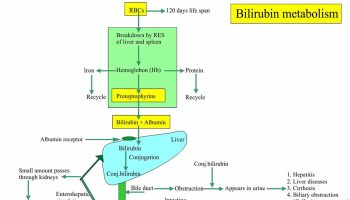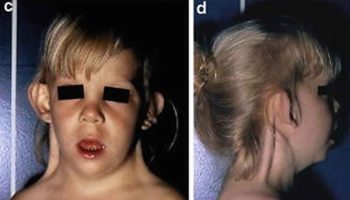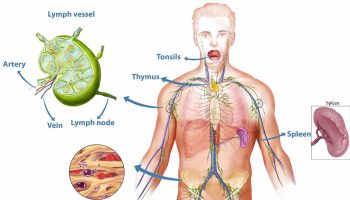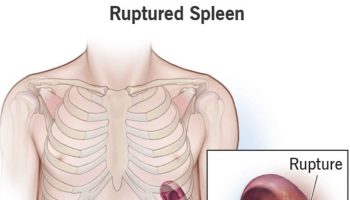Contents
What is memantine
Memantine or Memantine HCL medication is prescribed as a treatment for moderate to severe Alzheimer’s disease and dementia. Memantine is not a cure for Alzheimer’s disease but it can help people with the disease. Memantine will not cure Alzheimer’s disease and it will not stop the disease from getting worse. Memantine functions by blocking the N-methyl-D-aspartate (NMDA) receptor. Memantine (Namenda) and a combination of memantine and donepezil (Namzaric) are approved by the U.S. Food and Drug Administration (FDA) for treatment of moderate to severe Alzheimer’s disease. Studies show that memantine can somewhat delay the worsening of cognitive (mental) performance 1. Other abilities important in daily life may also last longer. Memantine is believed to help prevent excess levels of the substance glutamate from damaging the brain. Glutamate is a substance responsible for carrying nerve signals. Experiments on animals have suggested that people who have developed Alzheimer’s disease might also have too much glutamate in their brain. Memantine is meant to prevent excess glutamate from killing the nerve cells, without disturbing the normal transmission of nerve signals. The benefit after several years of use has not yet been studied.
Memantine is prescribed to improve memory, attention, reason, language and the ability to perform simple tasks. Memantine can be used alone or with other Alzheimer’s disease treatments. There is some evidence that individuals with moderate to severe Alzheimer’s who are taking a cholinesterase inhibitor might benefit by also taking memantine. A medication that combines memantine and a cholinesterase inhibitor is available.
Memantine:
- Regulates the activity of glutamate, a chemical involved in information processing.
- Improves mental function and ability to perform daily activities for some people..
- Can cause side effects, including headache, constipation, confusion and dizziness.
NMDA receptors (NMDARs) are a subfamily of ionotropic glutamate receptors that exhibit unique biophysical properties including high Ca2+ permeability and voltage-dependent block by Mg2+ 2. Synaptic NMDA receptors (NMDARs) play a central role in essential physiological processes 3 and extrasynaptic NMDARs also contribute to normal neuronal physiology 4.
- The synaptic NMDA receptors (NMDARs) have both presynaptic and postsynaptic locations on neurons 5. The presynaptic receptors play a role in synaptic transmission and plasticity of neuronal networks, while postsynaptic only have a role in the control of plasticity 6. Both types are involved in the activation of neuronal protective and survival genes 5.
- Extrasynaptic NMDA receptors (NMDARs) are located on dendrites and require high glutamate concentrations in order to be activated 7. These NMDARs are characterized by favoring the NR2B subunit which, when excessively stimulated, contribute to neurotoxicity and the control of neuronal cell death. Moreover, extrasynaptic NMDARs are involved in the regulation of Aβ production and thus in the neuropathology of Alzheimer’s disease 5. They are the main target of memantine.
Memantine is a low-affinity voltage-dependent uncompetitive antagonist of NMDA receptors (NMDARs), is currently being prescribed for the treatment of Alzheimer’s disease jointly with cholinesterase inhibitors such as galantamine, donepezil, and rivastigmine 8. Since it is a low-affinity antagonist, it blocks the N-methyl-D-aspartate (NMDA) receptor but it is rapidly displaced from it, avoiding prolonged receptor blockade and the associated negative side effects on learning and memory that have been observed in high affinity N-methyl-D-aspartate (NMDA) receptor antagonists like ketamine. In addition, preclinical data has reported that Memantine could block other receptors, such as nicotinic, acetylcholine, serotonin, and sigma-1 receptors 9. Another advantage of Memantine is that it only interacts with the channel when it is pathologically activated under an excessive glutamate concentration in the synaptic cleft, as is the case with Alzheimer’s disease. Memantine has been hypothesized to provide neuroprotection through more potent inhibition of extrasynaptic than synaptic NMDA receptors (NMDAR) 10. However, mechanisms by which memantine and ketamine inhibit distinct NMDA receptor (NMDAR) subpopulations selectively have not been clearly established 11. It is unclear whether NMDAR inhibition by memantine depends on the glutamate concentration 11. Memantine potency has been shown to increase with increasing NMDA concentration 12, which may suggest greater inhibition of synaptic NMDARs, but other reports have shown memantine potency not to depend on agonist concentration 11.
Memantine also has a suitable safety and tolerability limits showing a good therapeutic margin. Memantine is associated with a minimal rate of serum enzyme elevations during therapy and has only rarely been implicated as a cause of clinically apparent acute liver injury.
Several systematic reviews looked into whether people who have Alzheimer’s can benefit from memantine. The researchers were interested in several things, including whether the drugs improved mental (cognitive) performance, relieved mental health problems or made it easier for them to manage everyday tasks. They also looked into whether the medication influenced the need for care. A further aim of their analysis was to determine whether memantine is more or less effective than other medicines like Ginkgo-based products or cholinesterase inhibitors.
The studies compared memantine with a placebo (fake drug), with other medications, or with non-drug treatments. All of the studies looked at the effects of memantine on abilities that are important in daily life, on cognitive performance, and on mental health problems. Emotional strain on family members and loved ones was also included in most of the studies. Less data was collected on the quality of life of those affected or the need for care. So many questions remain unanswered. Since none of the studies lasted longer than twelve months, the consequences of long-term treatment with memantine remain unclear. It is also difficult to judge how memantine compares with other medications or non-drug treatments for Alzheimer’s disease.
The ability to manage practical activities of daily life – such as brushing your teeth, getting dressed or taking a bus or tram – worsened over the course of the study in all participants. But the studies suggest that memantine can delay this process.
They also show that memantine can somewhat delay the decline in cognitive performance (such as learning or remembering something, for example). Memantine was able to delay the worsening of cognitive performance over a period of six months in about 1 out of 10 people.
The studies also suggest that it can relieve severe restlessness. There is no information in these studies about whether memantine influences how long people with Alzheimer’s can still be cared for at home, though.
There is also no evidence that this treatment helps to lessen the burden on family members or loved ones, for example by lowering the need for care or lessening emotional stress. The effect of memantine didn’t depend on the study participants’ age, sex, or severity of disease.
People who took memantine didn’t drop out of studies early due to side effects more often than people who took a placebo. This is a sign that memantine was well-tolerated. Overall, memantine didn’t cause more side effects than a placebo, either. Yet too few people participated in the studies to gather data on possible rare side effects. Also, the participants were in relatively good health, aside from having Alzheimer’s disease. For this reason, it isn’t clear how well memantine would be tolerated by people who are also taking medication for other conditions.
Special precautions
Before taking memantine hcl:
- tell your doctor and pharmacist if you are allergic to memantine, any other medications, or any of the ingredients in memantine tablets, capsules, and oral solution. Ask your pharmacist or check the manufacturer’s patient information for a list of the ingredients.
- tell your doctor and pharmacist what prescription and nonprescription medications, vitamins, nutritional supplements, and herbal products you are taking. Be sure to mention any of the following: acetazolamide (Diamox); amantadine; dextromethorphan (Robitussin, others); methazolamide (Nepatazane); potassium citrate and citric acid (Cytra-K, Polycitra-K); sodium bicarbonate (Soda Mint, baking soda); and sodium citrate and citric acid (Bicitra, Oracit). Your doctor may need to change the doses of your medications or monitor you carefully for side effects.
- tell your doctor if you have or have a urinary tract infection now or if you develop one during your treatment with memantine and if you have or have ever had seizures, difficulty urinating, or kidney or liver disease.
- tell your doctor if you are pregnant, plan to become pregnant, or are breast-feeding. If you become pregnant while taking memantine, call your doctor.
if you are having surgery, including dental surgery, tell the doctor or dentist that you are taking memantine.
How should memantine be used?
Memantine comes as a tablet, a solution (liquid), and an extended-release (long-acting) capsule to take by mouth. The solution and tablet are usually taken once or twice a day with or without food. The capsule is taken once a day with or without food. Follow the directions on your prescription label carefully, and ask your doctor or pharmacist to explain any part you do not understand. To help you remember to take memantine, take it at around the same time(s) every day. Take memantine exactly as directed. Do not take more or less of it or take it more often than prescribed by your doctor.
Swallow the extended-release capsules whole; do not chew, divide, or crush them. If you are unable to swallow the extended-release capsules, you can carefully open a capsule and sprinkle the contents on a spoonful of applesauce. Swallow this mixture immediately without chewing it. Do not save this mixture to use at a later time.
If you are taking the oral solution, follow the manufacturer’s directions to measure your dose using the oral syringe that is supplied with the medication. Slowly squirt the medication from the syringe into a corner of your mouth and swallow it. Do not mix the medication with any other liquid. After you take your medication, follow the manufacturer’s directions to re-seal the bottle and clean the oral syringe. Ask your pharmacist or doctor if you have any questions about how to use this medication.
Your doctor will probably start you on a low dose of memantine and gradually increase your dose, not more than once every week.
Memantine helps to control the symptoms of Alzheimer’s disease but does not cure it. Continue to take memantine even if you feel well. Do not stop taking memantine without talking to your doctor.
Ask your doctor or pharmacist for a copy of the manufacturer’s information for the patient.
Memantine uses
Memantine is used to treat moderate to severe Alzheimer’s disease and dementia.
Memantine dosage
Take your medicine as directed. Your dose may need to be changed several times to find what works best for you. Most people need to wait at least one week between dose changes.
- You may take this medicine with or without food.
- Measure the oral liquid medicine with a marked measuring spoon, oral syringe, or medicine cup.
- Swallow the extended-release capsule whole. Do not crush, break, or chew it.
If you cannot swallow the extended-release capsule, you may open it and pour the medicine into a small amount of soft food such as pudding, yogurt, or applesauce. Stir this mixture well and swallow it without chewing.
For the liquid and extended-release capsule form: Read and follow the patient instructions that come with this medicine. Talk to your doctor or pharmacist if you have any questions.
Adult Dose for Alzheimer’s Disease
Use: Treatment of moderate to severe dementia of the Alzheimer’s type.
IMMEDIATE-RELEASE:
- Week 1: 5 mg orally once a day.
- Week 2: 10 mg orally/day (Administer 5 mg twice a day.)
- Week 3: 15 mg orally/day (Administer 5 mg and 10 mg as separate doses.)
- Week 4/Maintenance Dose: 20 mg orally/day (Administer 10 mg twice a day.)
EXTENDED-RELEASE:
- Initial Dose: 7 mg orally once a day.
- Maintenance and Maximum Dose: 28 mg orally once a day; increase the initial dose in 7 mg increments to the recommended maintenance dose.
Comments: The minimum recommended interval between dose increases is one week; only increase dosage if the previous dose has been well tolerated.
SWITCHING FROM IMMEDIATE-RELEASE (IR) TO EXTENDED RELEASE (XR):
- Patient on Regimen of 10 mg immediate release Twice a Day: Switch to 28 mg XR once a day on the day following the last dose of the immediate release drug.
- Patients with Severe Renal Impairment (creatinine clearance 5 to 29 mL/min): Switch to 14 mg XR once a day on the day following the last dose of the immediate release drug.
- Comments: There is no study data addressing the comparative efficacy of the 10 mg immediate release twice a day and 28 mg XR once a day regimens.
FAILING TO TAKE THE DRUG (immediate release or extended release) FOR SEVERAL DAYS: Consider resuming treatment at a lower dose and re-titrate according to the standard titration scheme.
Renal Dose Adjustments
- Mild and Moderate Renal Impairment (creatinine clearance 30 to 80 mL/min): No adjustment recommended.
- Severe Renal Impairment (creatinine clearance 5 to 29 mL/min): Immediate-Release: 5 mg orally twice a day; Extended-Release (Maintenance and Maximum Dose): 14 mg orally once a day.
Liver Dose Adjustments
- Mild and Moderate Hepatic Impairment (Child-Pugh A and B): No adjustment recommended.
- Severe Hepatic Impairment (Child-Pugh C): Immediate-Release: Use with caution; Extended-Release: Data not available.
What should I do if I forget a dose?
Take the missed dose as soon as you remember it. However, if it is almost time for the next dose, skip the missed dose and continue your regular dosing schedule. Do not take a double dose to make up for a missed one. If you forget to take memantine for several days, call your doctor before you start to take the medication again.
Memantine side effects
The most common side effects (frequency of at least 5% and higher than placebo) were dizziness, headache, confusion, constipation, and diarrhea.
Memantine may cause side effects. Tell your doctor if any of these symptoms are severe or do not go away:
- dizziness
- confusion
- aggression
- depression
- headache
- sleepiness
- diarrhea
- constipation
- nausea
- vomiting
- weight gain
- pain anywhere in your body, especially your back
- cough
Some side effects can be serious. If you experience either of the following symptoms, call your doctor immediately or get emergency medical help:
- shortness of breath
- hallucination (seeing things or hearing voices that do not exist)
Memantine may cause other side effects. Call your doctor if you have any unusual problems while taking this medication.
Cardiovascular
- Common (1% to 10%): Hypertension, hypotension, bradycardia, angina pectoris, phlebitis, deep thrombophlebitis, cardiac arrest
- Uncommon (0.1% to 1%): Cardiac failure, venous thrombosis/thromboembolism
- Frequency not reported: Postural hypotension, rhythm and rate disturbance (e.g., atrial fibrillation), QTc prolongation, ischemic event and sudden death (e.g., myocardial infarction), embolism, venous thrombosis/thromboembolism
Dermatologic
- Common (1% to 10%): Purpura, rash, basal cell carcinoma
- Frequency not reported: Dermatitis, skin disorder, skin ulceration, bullous eruption, pruritus, increased sweating
- Postmarketing reports: Stevens Johnson syndrome
Endocrine
- Common (1% to 10%): Hyperglycemia, diabetes mellitus
- Frequency not reported: Aggravated diabetes mellitus
Gastrointestinal
- Common (1% to 10%): Constipation, diarrhea, abdominal pain, vomiting, nausea, gastroenteritis
- Frequency not reported: Diverticulitis, dyspepsia, hemorrhoids, gastric ulcer, ileus
- Postmarketing reports: Pancreatitis
Genitourinary
- Common (1% to 10%): Urinary incontinence, fecal incontinence, urinary tract infection, hyperuricemia, micturition frequency
- Frequency not reported: Cystitis, pyuria, hematuria
Hepatic
- Common (1% to 10%): Increased ALT, increased AST, increased gamma-glutamyl transferase (GGT), increased phosphatase alkaline, elevated liver function test
- Postmarketing reports: Hepatitis, bilirubinemia
Hypersensitivity
- Common (1% to 10%): Drug hypersensitivity
Metabolic
- Common (1% to 10%): Increased weight, decreased weight, anorexia, dehydration, hypokalemia
- Frequency not reported: Increased appetite, hypernatremia, hyponatremia
Musculoskeletal
Common (1% to 10%): Back pain, arthralgia, leg pain, hypertonia, arthrosis, muscle weakness, myalgia, skeletal pain
Nervous system
- Common (1% to 10%): Dizziness, headache, somnolence, balance disorders, abnormal gait, syncope, coma
- Uncommon (0.1% to 1%): Seizures
- Frequency not reported: Aphasia, speech disorder, hyperkinesia, dyskinesia, dementia, partial epileptic seizure, convulsions, tremor, extrapyramidal disorder, transient ischemic attack, vertigo, numbness, paresthesia, stupor, cerebrovascular disorder, intracranial hemorrhage
Ocular
- Common (1% to 10%): Cataract, conjunctivitis
Other
- Common (1% to 10%): Fatigue, peripheral edema, pain, influenza, inflicted injury, fall, dependent edema, tooth ache, tooth caries, edema, abrasion
- Uncommon (0.1% to 1%): Fungal infections
- Frequency not reported: Fever, asthenia, tiredness, chest pain, menstrual disorder
Psychiatric
- Common (1% to 10%): Confusion, hallucination, anxiety, depression, aggression, agitation, insomnia, delusion, sleep disorder, abnormal crying
- Frequency not reported: Increased libido, mental status changes, nervousness, excitation/mania, suicide attempt, psychotic reactions
- Postmarketing reports: Suicidal ideation, suicide, psychotic reactions
Respiratory
- Common (1% to 10%): Coughing, dyspnea, bronchitis, pneumonia, upper respiratory tract infection, apnea, rhinitis
- Frequency not reported: Atelectasis
Hematologic
- Frequency not reported: Anemia
- Postmarketing reports: Agranulocytosis, leukopenia (including neutropenia), pancytopenia, thrombocytopenia, thrombotic thrombocytopenic purpura, increased erythrocyte sedimentation rate (ESR), leucocytosis
Renal
- Frequency not reported: Abnormal renal function, renal calculus
- Postmarketing reports: Acute renal failure (including increased creatinine, renal insufficiency)
Memantine overdose
Signs and symptoms most often accompanying memantine overdosage in clinical trials and from worldwide marketing experience, alone or in combination with other drugs and/or alcohol, include agitation, asthenia, bradycardia, confusion, coma, dizziness, ECG changes, increased blood pressure, lethargy, loss of consciousness, psychosis, restlessness, slowed movement, somnolence, stupor, unsteady gait, visual hallucinations, vertigo, vomiting, and weakness. The largest known ingestion of memantine worldwide was 2.0 grams in a patient who took memantine in conjunction with unspecified antidiabetic medications. The patient experienced coma, diplopia, and agitation, but subsequently recovered. Fatal outcome has been very rarely reported with memantine, and the relationship to memantine was unclear.
Because strategies for the management of overdose are continually evolving, it is advisable to contact a poison control center to determine the latest recommendations for the management of an overdose of any drug. As in any cases of overdose, general supportive measures should be utilized, and treatment should be symptomatic. Elimination of memantine can be enhanced by acidification of urine.
Symptoms of overdose may include:
- restlessness
- slowed movements
- agitation
- weakness
- slowed heartbeat
- confusion
- dizziness
- unsteadiness
- double vision
- hallucination (seeing things or hearing voices that do not exist)
- sleepiness
- loss of consciousness
- vomiting
- lack of energy
- sense that you or your surroundings are spinning
- Alzheimer’s disease: Does memantine help? https://www.ncbi.nlm.nih.gov/pubmedhealth/PMH0072540/[↩]
- Molecular bases of NMDA receptor subtype-dependent properties. Glasgow NG, Siegler Retchless B, Johnson JW. J Physiol. 2015 Jan 1; 593(1):83-95.[↩]
- NMDA receptor subunit diversity: impact on receptor properties, synaptic plasticity and disease. Paoletti P, Bellone C, Zhou Q. Nat Rev Neurosci. 2013 Jun; 14(6):383-400.[↩]
- Tonic NMDA receptor-mediated current in prefrontal cortical pyramidal cells and fast-spiking interneurons. Povysheva NV, Johnson JW. J Neurophysiol. 2012 Apr; 107(8):2232-43.[↩]
- Rush T, Buisson A (2014) Reciprocal disruption of neuronal signaling and Aβ production mediated by extrasynaptic NMDA receptors: A downward spiral. Cell Tissue Res 356, 279–286.[↩][↩][↩]
- Piette F, Belmin J, Vincent H, Schmidt N, Pariel S, Verny M, Marquis C, Mely J, Hugonot-Diener L, Kinet JP, Dubreuil P, Moussy A, Hermine O (2011) Masitinib as an adjunct therapy for mild-to-moderate Alzheimer’s disease: A randomised, placebo-controlled phase 2 trial. Alzheimers Res Ther 3, 16[↩]
- Lèveillè F, El Gaamouch F, Gouix E, Lecocq M, Lobner D, Nicole O, Buisson A (2008) Neuronal viability is controlled by a functional relation between synaptic and extrasynaptic NMDA receptors. FASEB J 22, 4258–4271[↩]
- Clinical trials and late-stage drug development for Alzheimer’s disease: an appraisal from 1984 to 2014. Schneider LS, Mangialasche F, Andreasen N, Feldman H, Giacobini E, Jones R, Mantua V, Mecocci P, Pani L, Winblad B, Kivipelto M. J Intern Med. 2014 Mar; 275(3):251-83.[↩]
- Allgaier M, Allgaier C (2014) An update on drug treatment options of Alzheimer’s disease. Front Biosci (Landmark Ed.) 19, 1345–1354.[↩]
- Memantine preferentially blocks extrasynaptic over synaptic NMDA receptor currents in hippocampal autapses. Xia P, Chen HS, Zhang D, Lipton SA. J Neurosci. 2010 Aug 18; 30(33):11246-50.[↩]
- Glasgow NG, Povysheva NV, Azofeifa AM, Johnson JW. Memantine and Ketamine Differentially Alter NMDA Receptor Desensitization. The Journal of Neuroscience. 2017;37(40):9686-9704. doi:10.1523/JNEUROSCI.1173-17.2017. https://www.ncbi.nlm.nih.gov/pmc/articles/PMC5628409/[↩][↩][↩]
- Open-channel block of N-methyl-D-aspartate (NMDA) responses by memantine: therapeutic advantage against NMDA receptor-mediated neurotoxicity. Chen HS, Pellegrini JW, Aggarwal SK, Lei SZ, Warach S, Jensen FE, Lipton SA. J Neurosci. 1992 Nov; 12(11):4427-36.[↩]





